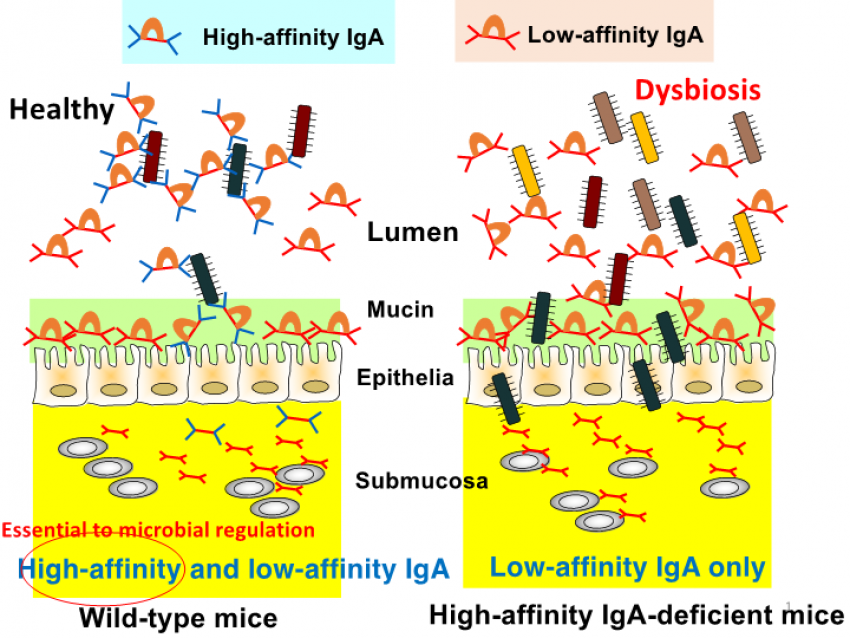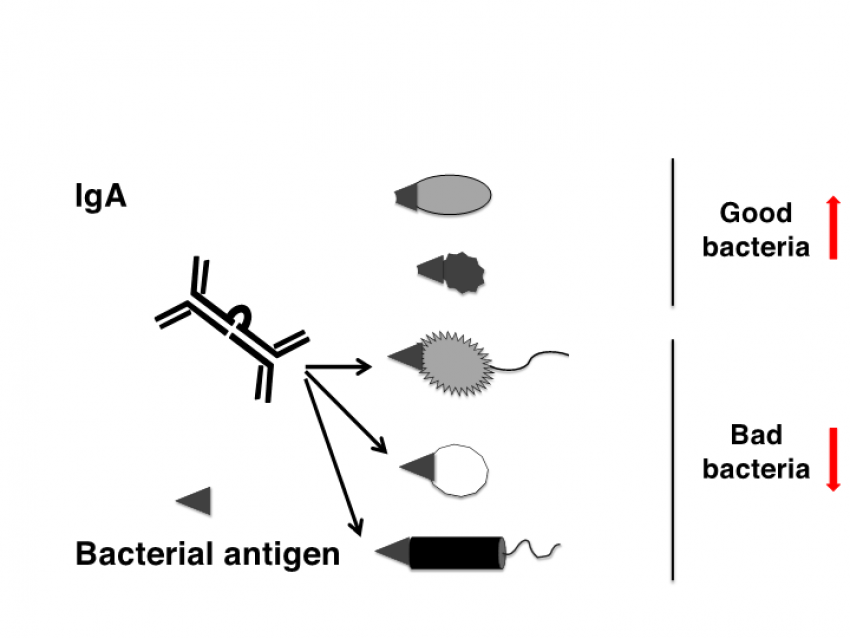Health and longevity through improvement of gut microbial condition by intestinal IgA


Reiko Shinkura
Institute for Quantitative Biosciences
Laboratory of Immunology and Infection Control Professor
Dysbiosis (an impaired gut microbiota) is associated with a variety of diseases including not only gastrointestinal diseases but also cancer, metabolic diseases, autoimmune diseases and so on, although definition of dysbiosis has not been determined yet. Intestinal IgA is a candidate as gut microbial modulator. This project aims to improve or treat dysbiosis by intestinal IgA leading to health and longevity.
Related links
Related publications
- Okai S, Usui F, Ohta M, Mori H, Kurokawa K, Matsumoto S, Kato T, Miyauchi E, Ohno H, Shinkura R. Intestinal IgA as a modulator of the gut microbiota. Gut Microbes. 2017 Apr 6:1-7.
- Okai S, Usui F, Yokota S, Hori-I Y, Hasegawa M, Nakamura T, Kurosawa M, Okada S, Yamamoto K, Nishiyama E, Mori H, Yamada T, Kurokawa K, Matsumoto S, Nanno M, Naito T, Watanabe Y, Kato T, Miyauchi E, Ohno H, Shinkura R. High-affinity monoclonal IgA regulates gut microbiota and prevents colitis in mice. Nat Microbiol. 2016 Jul 4;1(9):16103.
- Okai S, Usui F, Yokota S, Hori-I Y, Hasegawa M, Nakamura T, Kurosawa M, Okada S, Yamamoto K, Nishiyama E, Mori H, Yamada T, Kurokawa K, Matsumoto S, Nanno M, Naito T, Watanabe Y, Kato T, Miyauchi E, Ohno H, Shinkura R. High-affinity monoclonal IgA regulates gut microbiota and prevents colitis in mice. Nat Microbiol. 2016 Jul 4;1(9):16103.
Contact
- Laboratory of Immunology and Infection Control The Institute of Quantitative Biosciences
- Tel: +81-3-5841-8488
- Email: rshinkura[at]iam.u-tokyo.ac.jp
※[at]=@








